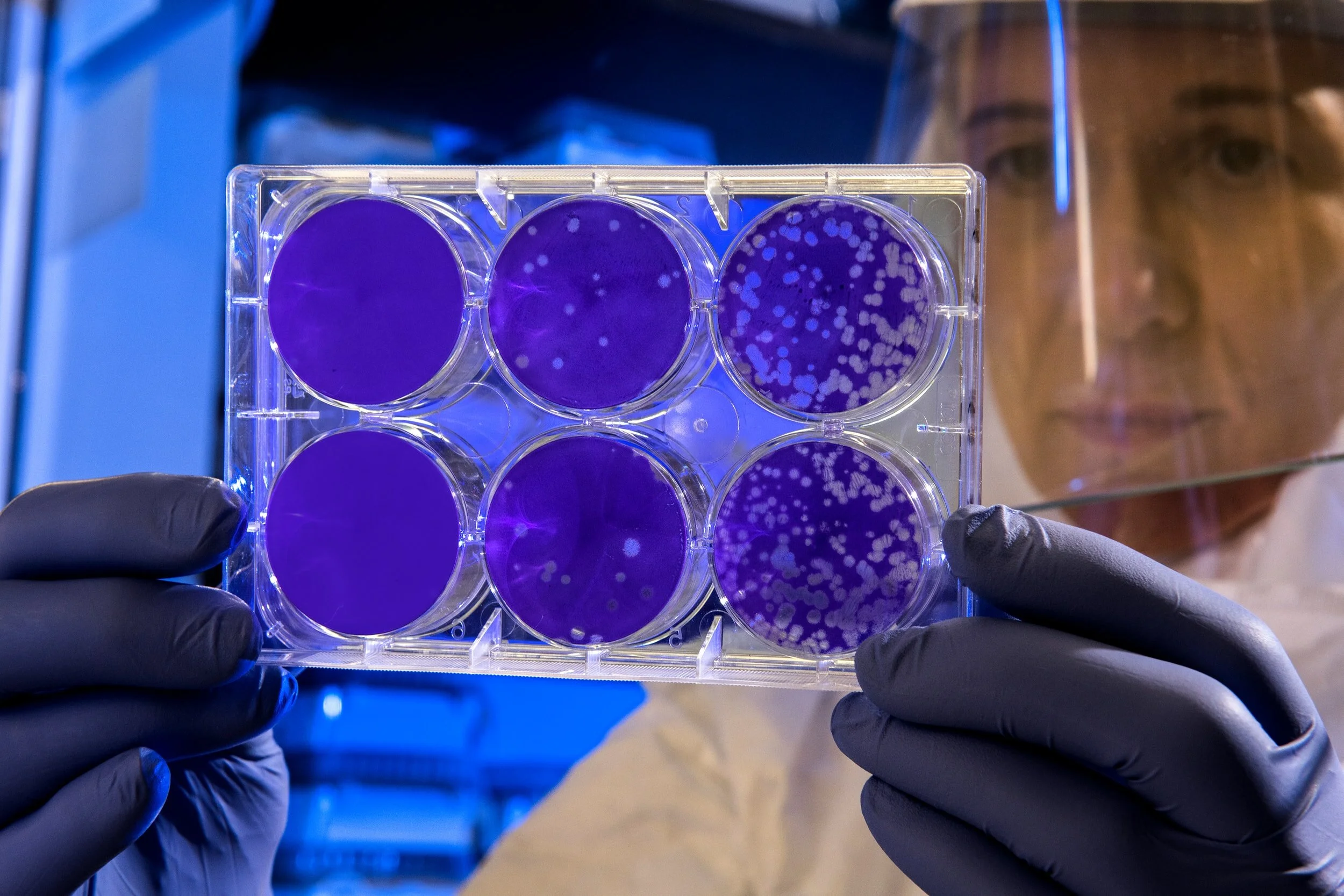OUR GOOD GERMS: WE CAN’T LIVE WITHOUT THEM
“I tell thee that those viewless beings, whose mansion is the smallest particle of the impassive atmosphere, think, feel and live like man.” - Percy B. Shelly ( 1792 - 1822 )
Life on earth, started about 3 billion year ago in the shallow seas, as single cell organisms, called ”Microbes.” Since then, these microbes have been continuously evolved, changed, multiplied and spread, to colonize every living organisms and every corners of planet earth. They are in the air, in the water we drink, in the foods we eat and in the soil we cultivate. They have billions of years of evolutionary wisdom, experience and advantage on us. They know what to do and how to survive, under any difficult circumstances.
Microbes have become a part of biological eco-system that contributes and helps to control every life form on earth. They have chosen different lifestyles for themselves. Some of them became aggressive, invasive disease causing microbes (pathogenic), some of them chosen to be innocent bystanders and the great majority of them chosen a symbiotic lifestyles, meaning that they live hand-in-hand by their host and contribute significantly to each other’s well- being. Luckily only 0.1 % of countless microbes are disease producing, dangerous microorganisms.
We have numerous microbes living on us. They live on our skin, in our body cavities, in our internal organs. They are harmless, beneficial good germs to us. They contribute so many ways to our well beings so much so that, we depend on them to live.
Our colon (large intestine) with its dark, moist, warm, anaerobic environment and plenty of undigested food particles for bacteria to feed on, is an ideal place for bacteria to grow and completely to colonize it. It is estimated that our colon is host about 50 to 300 billion count, and 1000 different kinds of microorganisms (bacteria, viruses, fungi, amoeba, worms). These population of microorganism called, “colonic microbiome”.
Before we realize the importance of our good germs, we declared war on all of them. We try to destroy them all with toxic chemicals, heat, antibiotics, extreme cleansing and sterilization techniques, extreme hygiene. But we finally realize that destroying them haphazardly, especially abusing antibiotics, kills our beneficial bacteria in our guts and cause monotonic species to grow. This is called, “dysbiome”. Dysbiome is blamed for the development of many allergic and immunologic diseases, and degenerative diseases, such as Parkinson, senility and type 2 diabetes. Dysbiome, beside the abuse of antibiotics, could also occur, after using extreme hygienic methods, following a simple monotonous diet, not eating fresh fruits and vegetables, and consuming only fast-food or processed foods .
We do not know all the benefits, our good germs provide for us. Some of the well- known benefits are listed below:
1.They protect us from the pathogenic and harmful bacteria by not giving them any room to grow and producing chemical substances to suppress the growth of pathogenic bacteria.
2.They stimulate our immune system to develop properly, and control the intensity of our immune reactions.
3. They help to digest, difficult to digest foods, like plant fibers and some complex carbohydrates like lactose, thereby adding to our total calorie intake. They digest plant fibers with their own specific enzymes we lack, down to” short chain fatty acids,” which are principle nutritional substances for themselves and for the colonic mucosal cells.
4. They produce many vitamins, such as Vitamin K, Folic acid, Vitamin B12 , Riboflavin And other B-group vitamins.
5. They neutralize toxic substances that occur as by-products, during the normal process of digestion.
6. They produce specific signal molecules to notify the enteric nervous system and the brain about the status of digestion.
7. They accelerate the absorption of major minerals, such as calcium, magnesium and trace elements.
8. They protect the colon from the development of polyps and cancer.
9. They communicate with the brain with certain signal molecules, to induce hunger feeling and craving for certain food substances.
10. They contribute the production of unique individual body odor.
So, If our good germs are so important to us, may be, we should not only take good care of ourselves, but also , our good germs that live in harmony with us.






